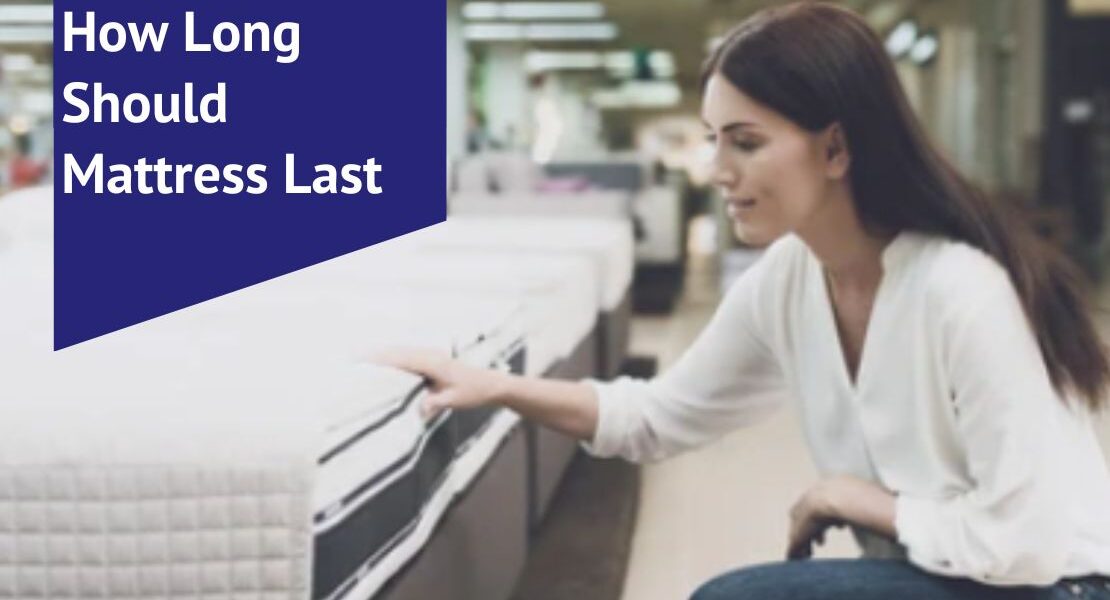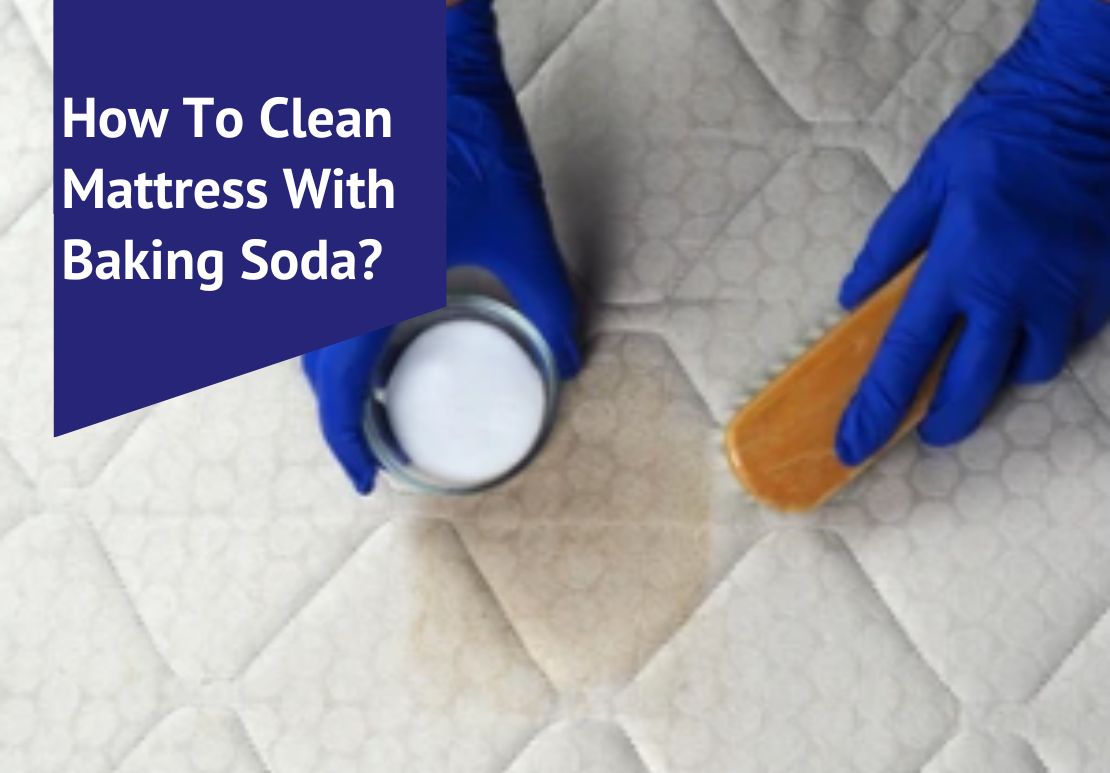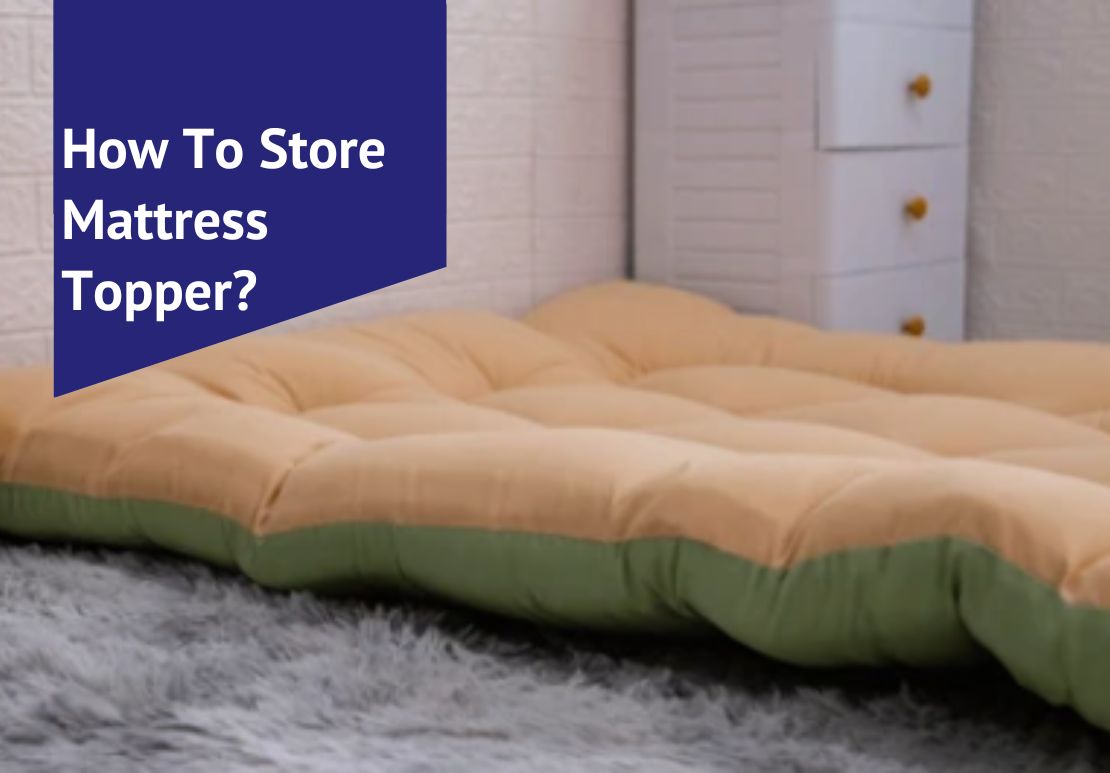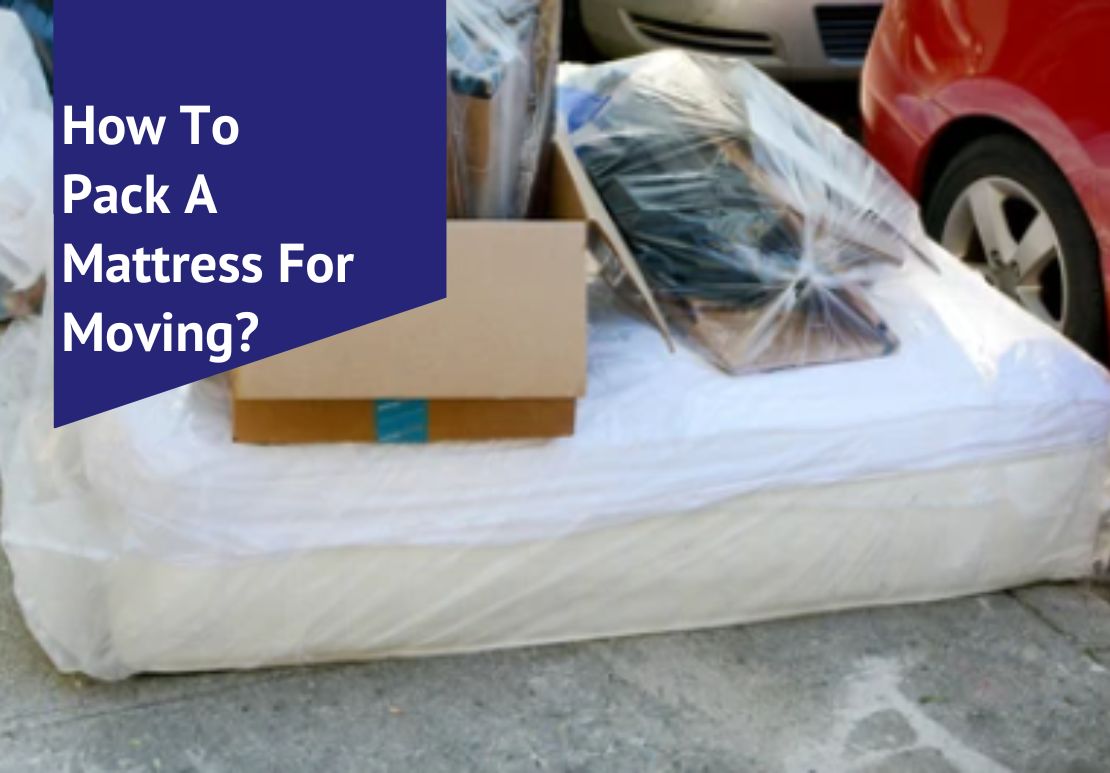Is your mattress showing signs of wear and tear, but you’re unsure if it’s time to replace it? Considering the average mattress can last between seven and ten years, knowing when to say goodbye can be a bit tricky.
This article will delve into factors that affect a mattress lifespan, how to recognize signs of aging in your own bed, and practical tips on prolonging its use. Are you ready for better sleep? Let’s dive into the details!
Table of Contents
Key Takeaways
- The average lifespan of a mattress is between seven and ten years, but it can vary based on factors like quality and use.
- Different types of mattresses have different lifespans. Innerspring mattresses last 5 to 7 years, memory foam lasts 8 to 10 years, and latex can last from 15 to 25 years.
- Signs that it’s time to replace your mattress include waking up tired, sagging or sinking in the mattress, increased body pain, night sweats, movement or shaking in the mattress, and allergies.
- When choosing a new mattress, consider your individual needs and preferences, research different types of mattresses (such as memory foam or hybrid), and test for comfort and support.
Factors That Affect Mattress Lifespan
The quality of materials and the frequency of use are two key factors that can significantly impact the lifespan of a mattress. Therefore, knowing the quality of materials is essential to knowing how long does a mattress last.
Quality of materials
Good materials make a mattress last long. Latex and memory foam mattresses are good examples. They can stay for 15 to 25 years and 8 to 10 years, respectively. But innerspring mattresses may last only for about 5-7 years.
This is due to the quality of their materials. Some pillows with an extra layer at the top can wear out faster than other types. This information will help you know how long should a mattress last.
Frequency of use can help you know how long should a mattress last
Everyday use affects how long a mattress lasts. If you sleep on it every night, it wears out faster. But, if only used once in a while, it can last longer than the average lifespan. To improve the life of a mattress, you can also use a mattress topper.
For example, mattresses in guest rooms do not wear down as fast as those used daily.
The weight and how many people sleep on the mattress also play a role. Beds under heavy load or carrying two people break down quicker and need to be replaced sooner. It’s part of why some families change their beds more often than single folks.
So think about these points when wondering about mattress longevity and durability.
Maintenance and care for your mattress to last longer
Taking good care of your mattress can make it last longer. This includes cleaning stains right away and turning the mattress often. Use a strong bed frame to keep the mattress flat and firm.
Don’t let kids jump on the bed because this can harm the springs or foam inside the mattress. Keep drinks away from your bed to avoid spills that may lead to mold growth. A waterproof cover helps guard against wetness and dirt, making your mattress clean and fresh for many years.
Signs That It’s Time to Replace Your Mattress and it’s time for a new one
Waking up tired, experiencing sagging or sinking in the mattress, feeling increased body pain, having night sweats, noticing movement or shaking when lying down, and developing allergies are all signs that it’s time to replace your mattress. Also, before you decide to replace your mattress to sleep better, ensure that you know the different mattress types to select the best mattress.
Waking up tired means it is time for a new mattress
Waking up tired is one of the signs that it may be time to replace your mattress. Over time, mattresses can lose their ability to provide proper support and comfort, leading to restless nights and morning fatigue.
A worn-out mattress may not properly align your spine or relieve pressure points, resulting in discomfort and poor sleep quality. If you consistently wake up tired despite getting enough hours of sleep, it could be a clear indication that your mattress has reached the end of its lifespan and needs replacing.
It’s important to prioritize your sleep health by investing in a new mattress that will provide the necessary support and help you wake up refreshed every morning.
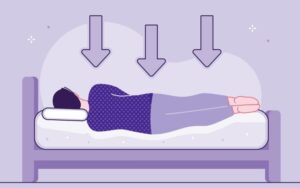
Sagging or sinking
When your mattress starts to sag or sink, it’s a clear sign that it may be time for a replacement. Sagging occurs when the surface of the mattress becomes uneven and sinks lower in certain areas.
This can happen over time due to wear and tear, or if the materials used in the mattress are not of good quality. A sinking mattress no longer provides proper support for your body during sleep, which can lead to discomfort and even increased body pain.
If you notice visible sagging or sinking in your mattress, it’s best to start considering a new one to ensure you get the restful sleep you need.
Increased body pain
If you’re experiencing increased body pain when you wake up, it could be a sign that your mattress needs to be replaced. Over time, mattresses can lose their support and cushioning, causing discomfort and pain.
As the materials in the mattress wear out, they may no longer provide adequate pressure relief for your body. This can lead to sore muscles and joints in the morning. If you find yourself waking up with more aches and pains than usual, it may be time to consider getting a new mattress that offers better support and comfort. Also, if you are a side or a back sleeper, you must opt for the best mattresses for side sleepers or back sleepers.
Night sweats
Night sweats can be a sign that it’s time to replace your mattress. Sweating excessively during the night may indicate that your mattress is not providing proper ventilation and cooling, causing you to feel hot and sweaty while you sleep.
This can disrupt your sleep and leave you feeling uncomfortable. Investing in a new mattress with better temperature regulation can help alleviate night sweats and improve the quality of your sleep.
Remember, a good-quality mattress should provide adequate airflow to keep you cool throughout the night.
Movement or shaking
If you notice movement or shaking in your mattress, it could be a sign that it’s time to replace it. Over time, mattresses can lose their support and stability, leading to excessive motion transfer when you move or turn in bed. This indicates that it is time to replace a mattress. Remember that even if you have invested in one of the best mattresses it won’t last forever, which is why to ensure quality sleep you must opt for a replacement.
This movement and shaking can disturb your sleep and make it difficult for you to get comfortable. Movement or shaking can also be caused by worn-out springs or broken coils within the mattress. If you experience this issue, it’s a good idea to start looking for a new mattress that provides better support and eliminates motion disturbance.
Allergies
Allergies can also be a sign that it’s time to replace your mattress. Over time, mattresses can accumulate dust mites, mold, and other allergens that may trigger allergic reactions.
If you find yourself waking up with a stuffy nose, sneezing, or experiencing other allergy symptoms consistently, it might be due to your old mattress. Old mattresses are more likely to harbor these allergens compared to newer ones. Thus, once you know an old mattress can cause such potential problems, it is time to replace it with a comfortable and supportive mattress.
By replacing your mattress, you can create a cleaner sleeping environment and potentially relieve allergy symptoms. Keep in mind that using a hypoallergenic mattress protector can also help reduce allergen buildup and extend the lifespan of your new mattress.
Choosing the Best Mattress
Consider your individual needs and preferences, research different types of mattresses, and test for comfort and support. Read on to discover how to find the perfect mattress for a good night’s sleep.
Consider individual needs and preferences
When choosing a mattress, it’s important to consider your own needs and preferences. Think about factors such as the level of firmness you prefer, whether you have any specific health conditions or concerns (like back pain or allergies), and your preferred sleeping position.
Research different types of mattresses to find the one that best suits your needs, whether it’s memory foam, latex, hybrid, or innerspring. And don’t forget to test for comfort and support before making a decision.
Remember that everyone is unique, so what works for someone else may not work for you.
Research different types
To find the best mattress for your needs, it’s important to research different types when you go out shopping for a mattress. There are various kinds of mattresses available, such as innerspring, memory foam, latex, saatva mattress, and hybrid mattresses.
Each type has its own characteristics and benefits. Innerspring mattresses are known for their traditional coil support system, while memory foam mattresses contour to your body shape. To get the best memory foam or other type of mattress, you can also check out the various mattress sales available. Also, when you buy a mattress pay attention to the quality of your mattress.
Latex mattresses offer natural responsiveness and durability, while hybrid mattresses combine the best features of different materials. By understanding the differences between these types and considering factors like comfort and support levels, you can make an informed decision when choosing your new mattress.
Test for comfort and support
To choose the best mattress for your needs, it’s important to test for comfort and support. Lie down on the mattress and see how it feels. Is it too firm or too soft? You want a mattress that provides proper support for your body while also being comfortable.
Pay attention to how it supports your spine and relieves pressure points. Remember, everyone is different, so what may be comfortable for one person might not be comfortable for another.
Take your time when testing out mattresses to find the one that feels right for you.
How long does the average mattress last?
The average lifespan of a mattress can vary based on factors such as quality and frequency of use.
Varies based on quality and use
The lifespan of a mattress can vary depending on its quality and how often it is used. Higher-quality mattresses tend to last longer than lower-quality ones. Additionally, the more frequently a mattress is used, the shorter its lifespan will be.
It’s important to consider these factors when determining how long your mattress will last.
The average lifespan of different types
The average lifespan of a mattress heavily depends on the type of material it is made from. Below is a table detailing the estimated lifespan of various types of mattresses which will guide you to know if you need to replace your mattress and whether it is time for a new one.
|
Material |
Average Lifespan |
| Innerspring | 5 to 7 years |
| Memory Foam | 8 to 10 years |
| Latex | 15 to 25 years |
| Hybrid | 7 to 10 years |
| Pillow Top | Potentially shorter lifespan due to added layer of padding |
Remember, these are average estimates based on general usage and proper maintenance. Individual experiences may differ depending on various factors such as usage frequency, care, and individual preferences.
Importance of Replacing an Old Mattress
Replacing an old mattress is crucial for improving sleep quality and overall health, while also avoiding potential health hazards associated with a worn-out mattress.
Improved sleep quality and health after you replace a mattress
Having a good quality mattress that is in good condition is essential for improved sleep quality and overall health. When a mattress starts to deteriorate, it can negatively impact your sleep.
A worn-out mattress may cause discomfort, back pain, and difficulty in getting a restful night’s sleep. By replacing your old mattress with a new one, you can improve the quality of your sleep and wake up feeling refreshed and energized.
Additionally, an old mattress may accumulate allergens such as dust mites over time, which can trigger allergies or respiratory issues. Therefore, replacing your mattress periodically can help maintain a healthy sleeping environment and promote better overall health.
Avoiding potential health hazards for better sleep
One important reason to replace your old mattress is to avoid potential health hazards. Over time, mattresses can accumulate dust mites, allergens, and even mold, which can trigger allergies or respiratory issues.
A worn-out mattress may also lose its ability to provide proper support for your body, causing discomfort and pain. By replacing your mattress regularly, you can improve your sleep quality and reduce the risk of developing these health problems.
How to Make Your Mattress Last Longer
To extend the lifespan of your mattress, proper maintenance, and care are essential. Regularly rotating or flipping the mattress can help distribute wear evenly and prevent sagging.
Using a mattress protector can protect against spills, stains, and allergens. Vacuuming your mattress regularly to remove dust and dirt can also contribute to its longevity.
Proper maintenance and care
To ensure that your mattress lasts as long as possible, it’s important to give it proper maintenance and care. This includes regularly rotating the mattress to even out wear and tear.
It’s also a good idea to clean your mattress periodically by vacuuming or spot-cleaning any stains. Using a mattress protector can help shield the mattress from spills, dust mites, and allergens, which can all affect its lifespan.
Additionally, avoiding jumping or standing on the mattress can prevent unnecessary strain and damage. Taking these steps will not only extend the life of your mattress but also contribute to better sleep quality in the long run.
Using a mattress protector
To protect your mattress and extend its lifespan, it is recommended to use a mattress protector. A mattress protector acts as a barrier, shielding your mattress from spills, stains, dirt, and dust mites.
It also helps prevent damage caused by body oils and perspiration. By keeping your mattress clean and fresh, a mattress protector can help maintain its quality over time. Additionally, using a mattress protector helps to preserve any warranties that may be in place for your mattress.
Regularly washing the protector will ensure that it remains effective in protecting your investment for years to come.
Factors to Consider When Replacing Your Mattress
When replacing your mattress, it is important to consider factors such as your sleep position and preferences, material preferences, sleeping with a partner, and budget.
Sleep position and preferences
Considering your sleep position and preferences is crucial when replacing your mattress. Different sleep positions require different levels of support and comfort to ensure a good night’s rest.
For example, if you are a side sleeper, you may need a softer mattress that allows for better contouring to alleviate pressure points on your hips and shoulders. On the other hand, back sleepers may benefit from a medium-firm mattress that offers proper spinal alignment.
Additionally, factors such as body weight, temperature regulation, and any specific health concerns should be taken into account when choosing the right mattress for your needs. By considering these factors, you can select a mattress that suits both your personal preferences and promotes healthy sleep posture throughout the night.
Material preferences
When choosing a mattress, it’s important to consider your material preferences. Different materials offer different levels of comfort and support, so finding the right one for you is crucial.
Memory foam mattresses are known for their contouring abilities and pressure relief. Latex mattresses provide great durability and bounce, while innerspring mattresses offer strong support with their coil systems.
Hybrid mattresses combine the benefits of both memory foam and innerspring mattresses. Each material has its lifespan as well, with latex lasting the longest at 15 to 25 years on average, followed by memory foam at 8 to 10 years, hybrid at 7 to 10 years, and innerspring at 5 to 7 years.
Consider your personal preferences and needs when deciding on a mattress material that will provide you with the best sleep experience possible.
Sleeping with a partner
Sharing a mattress with a partner can have an impact on its lifespan. The weight and movement of two people can cause more wear and tear on the mattress compared to when it is used by one person.
This means that the mattress may need to be replaced sooner than the average lifespan. It’s important to choose a mattress that provides adequate support for both individuals, considering factors like their sleep positions and preferences.
Additionally, motion isolation features can help minimize disturbances caused by movements during the night. Regularly rotating and flipping the mattress can also help distribute weight evenly, prolonging its durability and ensuring comfortable sleep for both partners.
Budget
One important factor to consider when replacing your mattress is your budget. Mattresses come in a wide range of prices, so it’s essential to determine how much you’re willing to spend.
Keep in mind that higher-priced mattresses often offer better durability and comfort. However, that doesn’t mean you have to break the bank. There are affordable options available that still provide good quality and support.
Look for sales or discounts, compare prices from different retailers, and consider purchasing online where you may find better deals. Remember that investing in a durable and comfortable mattress is worthwhile for improving your sleep quality and overall health.
Conclusion – Knowing how long does a mattress last
In conclusion, the average lifespan of a mattress is between seven and ten years. However, this can vary depending on factors such as the type of material and how it is cared for. Signs that it’s time to replace your mattress include waking up tired, sagging or sinking, increased body pain, night sweats, movement or shaking, and allergies.
When choosing a new mattress, consider your individual needs and preferences, research different types, and test for comfort and support. By replacing your old mattress when needed and taking proper care of your new one, you can ensure better sleep quality and overall health.
Frequently Asked Questions
How long should a mattress typically last?
On average, a mattress can last between 7 to 10 years before it needs to be replaced.
What factors can affect the lifespan of a mattress?
The lifespan of a mattress can be influenced by factors such as quality, usage frequency, body weight, and maintenance.
Can I extend the life of my mattress?
Yes, you can extend the life of your mattress by rotating it regularly, using a mattress protector, and avoiding jumping or standing on it.
What are the signs that indicate my mattress needs to be replaced?
Signs that your mattress may need replacement include sagging or indentations, discomfort or pain while sleeping, and allergies caused by dust mites or allergens.
Is there a specific type of mattress that lasts longer than others?
While different types of mattresses have varied lifespans based on their materials and construction methods, generally speaking, high-quality memory foam and latex mattresses tend to have longer durability compared to traditional innerspring mattresses.

